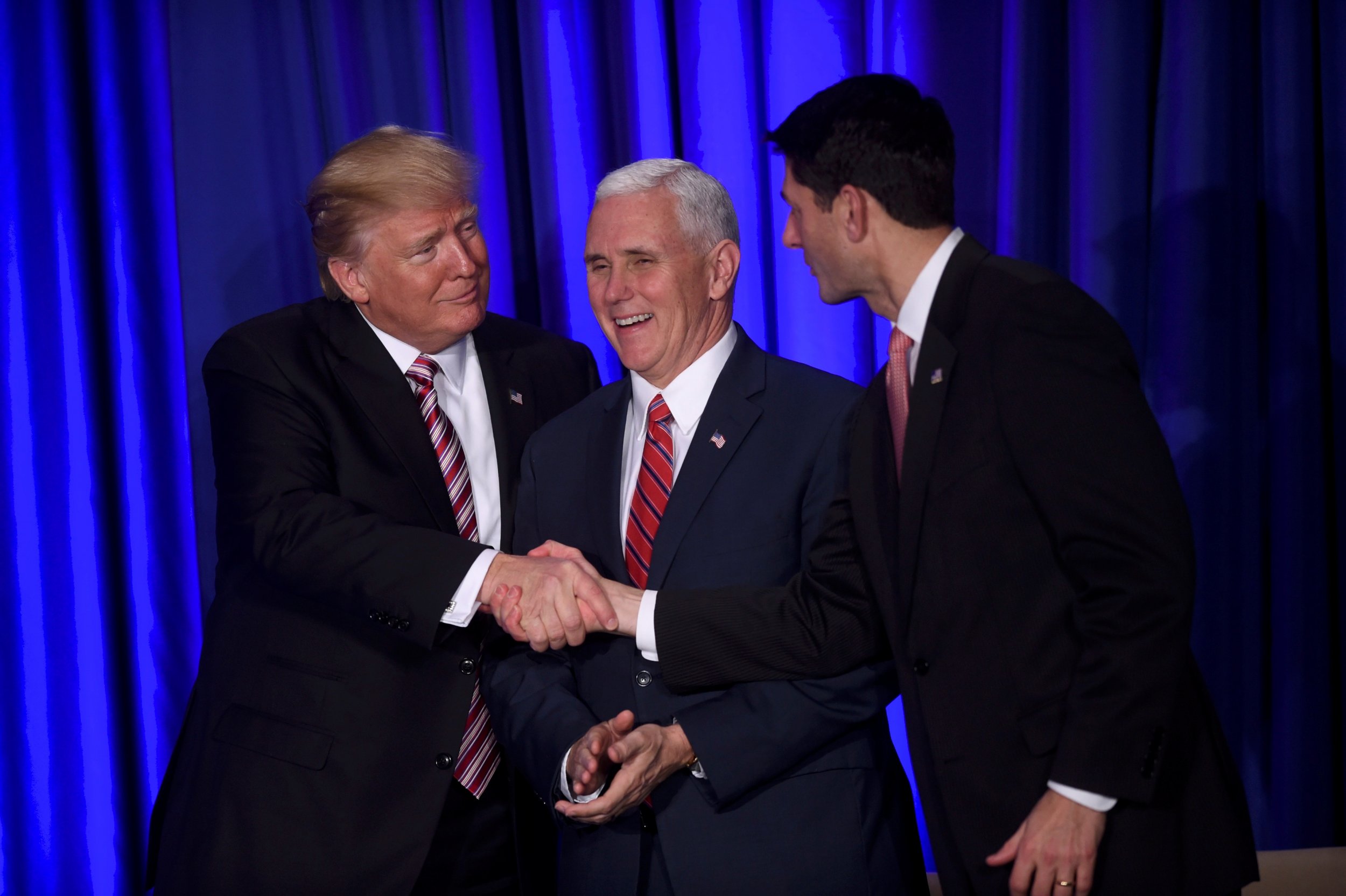
So it's finally out. The Congressional Budget Office (CBO) has released its much-anticipated cost estimate of the Republican health care plan that's making its way through the House of Representatives. No wonder the White House and Republican leaders in Congress have been dissing the CBO recently. "Sometimes we ask them to do stuff they're not capable of doing," said Mick Mulvaney, the director of the Office of Management and Budget. Actually this kind of estimate, albeit tricky, is exactly what the CBO, staffed mostly by economists, does.
Far from showing that the Republican plan would improve health care coverage, the 38-page report predicts that 14 million fewer Americans would have health insurance by next year than if the country stuck with Obamacare. By 2026, that number would soar to 24 million.
Related: Inside the GOP's New Health Car Plan
There are some aspects of the CBO report that play well for the Trump administration. It shows that the plan would save money over Obamacare, about $337 billion over the next nine years.
But most of the drop in coverage under the Republican plan, the CBO estimates, would come from the end of the individual mandate that requires all Americans to purchase health insurance. These are people, the report notes, who might buy health insurance now in order to avoid the tax penalty that comes from not purchasing it. That could have terrible consequences in the long run because the insurance pool would lose the young healthy people who keep rates low for all Americans. For instance, the report projects the percentage of people age 19 to 29 without insurance would double under the Republican plan.
The report also predicts—ominously—that a substantial part of those who would be without health insurance would be those who would lose the subsidies and Medicaid coverage that allow them to purchase health insurance under Obamacare. Medicaid outlays would drop by $880 billion over the next nine years, the report found, while the wealthy would receive substantial tax cuts under Trumpcare.
Costs for the near elderly, those in their 50s and 60s who aren't yet to eligible for Medicare—which kicks in at age 65—would rise especially sharply. For a person who is 64 the tax credit they would receive to help them buy insurance would drop, on average from $13,600 to $4,900 leaving them shelling out $14,600 out of pocket more than under the current system. By contrast, a 40-year-old might only have to pay about $700 more than they do now, while a 21-year-old buying health insurance would probably pay less than they currently do in part because they'll be able to buy plans that only cover catastrophes. (Obamacare requires anyone to buy a fairly robust package of insurance).
Under Trumpcare, the total number of uninsured Americans is expected to rise from 28 million if the country would stick with Obamacare to 52 million under the Republican plan. And poor women are among the biggest losers. Because the Republican proposal would cut off funds to Planned Parenthood, it would lead to a substantial loss of access to women's health care. The CBO also estimates that 15 percent of people in poor areas would lose access to health care. Right now, no Medicaid money pays for abortions and that's been the case since the Hyde Amendment in 1979. Planned Parenthood does receive federal money through patients using Medicaid for women's health services such as cancer screenings. Republicans have argued that community health centers, unaffiliated with Planned Parenthood that have nothing to do with abortion, could pick up the slack but the CBO analysis suggests otherwise.
Determining health care costs is difficult, something the CBO acknowledges. There's a lot that's still unclear about how states and insurers and individuals respond to a Republican replacement for Obamacare. Do insurers leave certain markets altogether? Do young people flee or remain in the system even after Congress repeals the individual mandate. Questions like these are hard to determine so the CBO says it uses its best estimates and, to its credit, the report acknowledges that it overestimated how many people participated in the Obamacare health insurance exchanges by 100 percent.
Still, CBO's record on estimating the costs of Obamacare is excellent overall, according to a report from the Commonwealth Fund, a nonpartisan think tank. It's still the best oddsmaker in this town. The report offers a vision of a country where fewer people are insured and many are paying much more for health insurance. That is at odds with the bright vision that the president and Republicans have promised Americans
Uncommon Knowledge
Newsweek is committed to challenging conventional wisdom and finding connections in the search for common ground.
Newsweek is committed to challenging conventional wisdom and finding connections in the search for common ground.
About the writer
Matthew Cooper has worked for some of America's most prestigious magazines including Time, The New Republic, National Journal, U.S. News ... Read more
To read how Newsweek uses AI as a newsroom tool, Click here.








